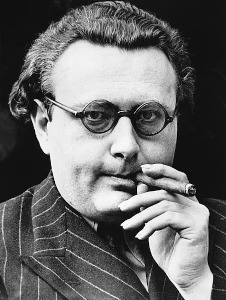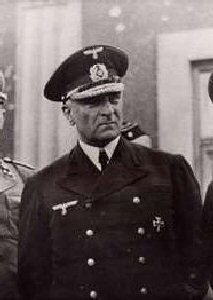
Psychological warfare (PSYWAR), or the basic aspects of modern psychological operations (PsyOp), has been known by many other names or terms, including Military Information Support Operations (MISO), Psy Ops, political warfare, "Hearts and Minds", and propaganda. The term is used "to denote any action which is practiced mainly by psychological methods with the aim of evoking a planned psychological reaction in other people".
Black propaganda is a form of propaganda intended to create the impression that it was created by those it is supposed to discredit. Black propaganda contrasts with gray propaganda, which does not identify its source, as well as white propaganda, which does not disguise its origins at all. It is typically used to vilify or embarrass the enemy through misrepresentation.

Soldatensender Calais (G.9) was a British black propaganda broadcaster during the Second World War operated by the Political Warfare Executive. It pretended to be a station of the German military broadcasting network. The station was in operation between 14 November 1943 and 30 April 1945, when it ceased operations.

Sir Richard Stafford Cripps was a British Labour Party politician, barrister, and diplomat.

During World War II, the Political Warfare Executive (PWE) was a British clandestine body created to produce and disseminate both white and black propaganda, with the aim of damaging enemy morale and sustaining the morale of countries occupied or allied with Nazi Germany.
The year 1940 saw a number of significant events in radio broadcasting history.

Denis Sefton Delmer was a British journalist of Australian heritage and propagandist for the British government during the Second World War.

British Security Co-ordination (BSC) was a covert organisation set up in New York City by the British Secret Intelligence Service (MI6) in May 1940 upon the authorisation of the Prime Minister, Winston Churchill.

The Psychological Warfare Division of Supreme Headquarters Allied Expeditionary Force was a joint Anglo-American organization set-up in World War II tasked with conducting (predominantly) white tactical psychological warfare against German troops and recently liberated countries in Northwest Europe, during and after D-Day. It was headed by US Brigadier-General Robert A. McClure. The Division was formed from staff of the US Office of War Information (OWI) and Office of Strategic Services (OSS) and the British Political Warfare Executive (PWE).

Louis de Wohl was a German-born Catholic author, and had served as an astrologer notable for his work with MI5 from England during World War II. Sixteen of his popular pre-war novels were the basis of movies. His later novels are literary hagiographies of notable Roman Catholic saints and of different periods of the Bible.

Feindsender was a term used in Nazi Germany to describe radio stations broadcast by enemies of the German Reich before and during World War II, such as the United Kingdom or the United States. It also referred to radio stations in Germany which broadcast anti-Nazi material. The term has not been in general use since the downfall of the Third Reich.

Aspidistra was a British medium wave radio transmitter used for black propaganda and military deception purposes against Nazi Germany during World War II. At times in its history it was the most powerful broadcast transmitter in the world. Its name – after the popular foliage houseplant – was inspired by the 1938 comic song "The Biggest Aspidistra in the World", best known as sung by Gracie Fields.
"Licking Hitler" is the 12th episode of the eighth series of the BBC anthology Play for Today British TV series. The episode was originally broadcast on 10 January 1978. "Licking Hitler" was written and directed by David Hare, produced by David Rose, and starred Kate Nelligan and Bill Paterson. Photography was by Ken Morgan and John Kenway.
Morale Operations was a branch of the Office of Strategic Services during World War II. It utilized psychological warfare, particularly propaganda, to produce specific psychological reactions in both the general population and military forces of the Axis powers in support of larger Allied political and military objectives.

Throughout World War II, both the Axis and Allied sides used propaganda to sway the opinions of Indian civilians and troops, while at the same time Indian nationalists applied propaganda both within and outside India to promote the cause of Indian independence.

Friedrich Lützow was a German naval officer who served in the Kaiserliche Marine, the Reichsmarine and the Kriegsmarine, eventually reaching the rank of Vizeadmiral during World War II. He was also a writer on naval warfare.

Parole der Woche was a wall newspaper published by the Reichspropagandaleitung der NSDAP from 1937 to 1943. Historian Jeffrey Herf describes Parole der Woche as "the most ubiquitous and intrusive aspect of Nazism's visual offensive ... no form of Nazi visual propaganda made so crucial a contribution to the regime's presentation of ongoing events".
This is a list of events from British radio in 1943.
This is a list of events from British radio in 1941.
This is a list of events from British radio in 1940.












